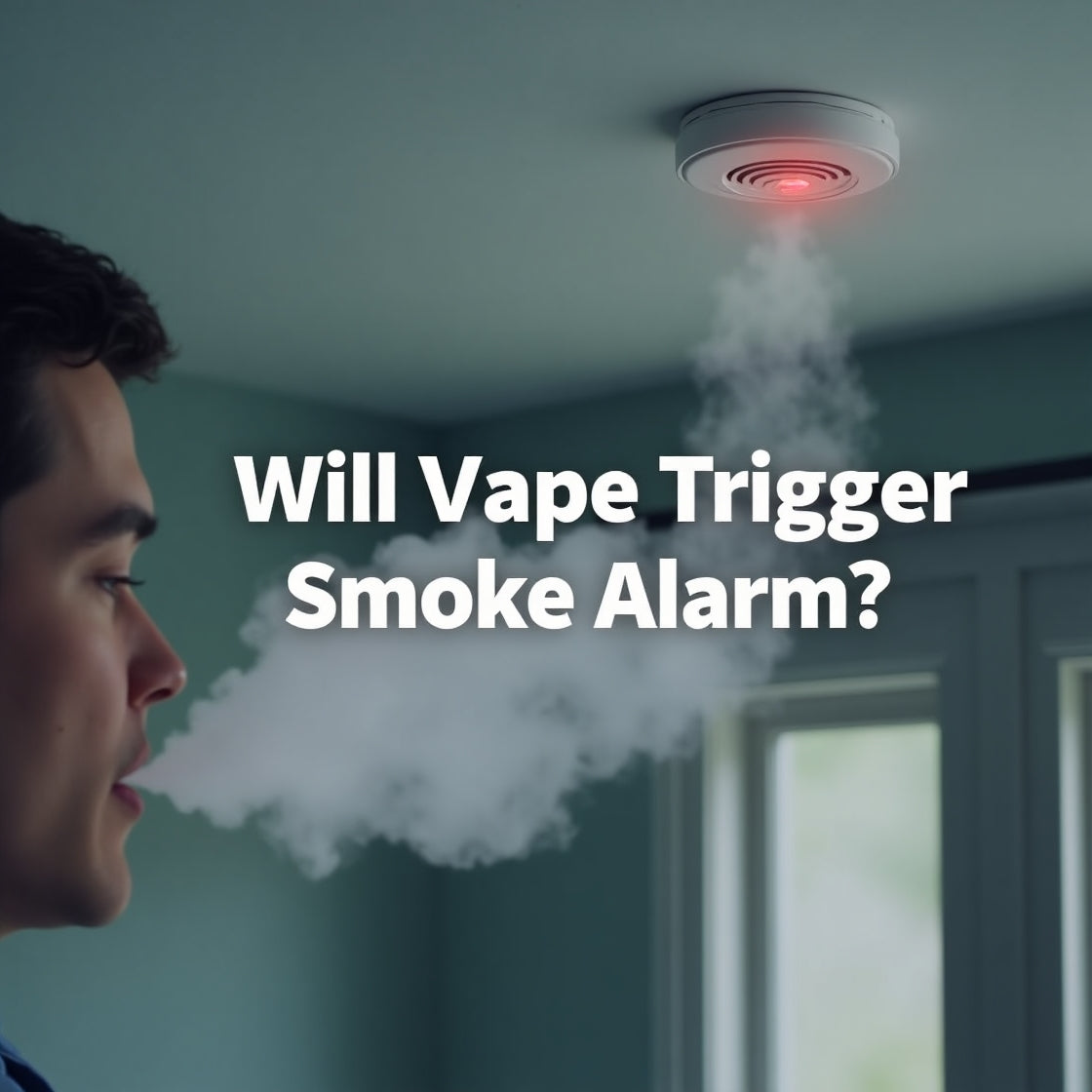
Will Vape Trigger Smoke Alarm?
If you've ever pondered, "will vape trigger smoke alarm?" you're not alone. This question is especially pertinent for vapers who frequent hotels, reside in apartments, or share living spaces. Understanding the interaction between vape aerosols and smoke detectors is crucial to avoid unexpected alarms and potential penalties.
Understanding Smoke Detectors and Their Sensitivity to Vapor
Smoke detectors are designed to identify particles in the air that may indicate a fire. However, the type of detector plays a significant role in its sensitivity to vapor.
1. Ionization Smoke Detectors
These detectors use a small amount of radioactive material between two electrically charged plates, ionizing the air and creating a current. When smoke enters the chamber, it disrupts this current, triggering the alarm. While ionization detectors are more responsive to flaming fires, they are generally less sensitive to vapor. However, in high concentrations, vapor can still set them off.
2. Photoelectric Smoke Detectors
Photoelectric detectors use a light beam and a sensor. When smoke particles scatter the light, it hits the sensor, activating the alarm. These detectors are more sensitive to larger particles, such as those found in vapor, making them more likely to be triggered by vaping.
3. Dual-Sensor Smoke Detectors
Combining both ionization and photoelectric technologies, dual-sensor detectors offer comprehensive detection. Consequently, they are more susceptible to being triggered by vapor.
Real-Life Incidents: Vaping and Smoke Alarms
There have been instances where vaping has inadvertently triggered smoke alarms:Vuse+3Latest news & breaking headlines+3blu+3
-
Hotel Incidents: A woman in Adelaide faced legal consequences after taping over a hotel smoke detector to vape, leading to a fire caused by an e-scooter battery. adelaidenow
-
Public Spaces: Reports indicate that vaping in enclosed public areas, like airports and schools, has set off smoke alarms, causing evacuations and disruptions. SKE Vape+1PMC+1
Tips to Prevent Vaping from Triggering Smoke Alarms
To minimize the risk of setting off smoke detectors while vaping, consider the following strategies:
1. Enhance Ventilation
Ensure the area is well-ventilated. Open windows or use fans to disperse vapor quickly, reducing its concentration near detectors.
2. Avoid Direct Exhalation Towards Detectors
Be mindful of where you exhale vapor. Directing it away from smoke detectors can prevent false alarms.
3. Opt for Low-Vapor Devices
Use vaping devices that produce less vapor, such as pod systems or disposables. These are less likely to trigger alarms compared to high-powered devices.
4. Choose E-Liquids with Lower VG Content
E-liquids high in vegetable glycerin (VG) produce denser vapor. Selecting e-liquids with a higher propylene glycol (PG) ratio can reduce vapor density.
5. Use Vapor Absorption Tools
Devices like smoke buddies can filter exhaled vapor, minimizing its presence in the air and reducing the chance of triggering alarms.
Vaping in Hotels and Public Spaces
Many establishments have strict no-smoking policies that include vaping. Triggering a smoke alarm can lead to fines or other penalties. Always check the property's policy before vaping indoors.
Vaping on Airplanes and Airports
Airplanes and airports are equipped with highly sensitive smoke detectors. Vaping in these areas is prohibited and can lead to severe consequences, including fines and legal action.
Vaping in Hospitals
Hospitals prioritize safety and often have advanced smoke detection systems. Vaping in such environments is discouraged and may trigger alarms, leading to unnecessary disruptions.
Conclusion
So, will vape trigger smoke alarm? The answer is: it can. Understanding the types of smoke detectors and how vapor interacts with them is essential for vapers. By adopting precautionary measures and being aware of your environment, you can enjoy vaping without unintended alarms.
Note: Always respect local laws and property rules regarding vaping. Safety should be a top priority.
